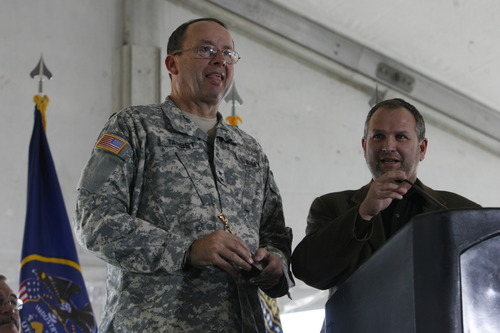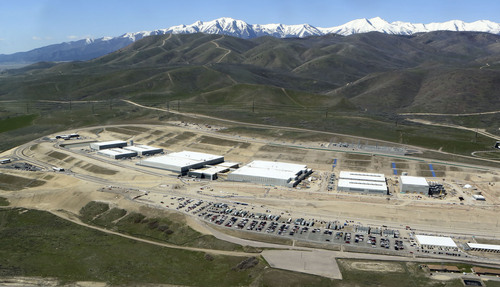This is an archived article that was published on sltrib.com in 2014, and information in the article may be outdated. It is provided only for personal research purposes and may not be reprinted.
A panel charged with enforcing Utah's open-records laws has ordered the city of Bluffdale to hand over documents regarding water usage at the controversial Utah Data Center.
The State Records Committee voted 5-0 Wednesday in favor of disclosing the water records, which had been sought by The Salt Lake Tribune. Panel members also ruled 3-2 to reduce fees city officials wanted to charge for gathering and reviewing the records, lowering the amount from $767.45 to $285.
Bluffdale, which sells water to the National Security Agency's newly opened data center on the city's southern border, had denied a request for the records from The Tribune, Utah's largest daily newspaper.
Bluffdale officials argued that releasing records on water usage and billing for the $1.5 billion NSA facility threatened the security of the site and operations conducted there, which are thought to include storage and analysis of vast troves of data collected under several NSA surveillance programs.
Other government records indicate the massive Utah Data Center, which had been scheduled to open last fall, is expected at peak operation to consume more than 1 million gallons of water per day, much of it for cooling powerful computer systems and high-capacity data-storage equipment.
The NSA's wide-ranging, data-collection programs have been the subject of damaging media leaks since last summer, sparking claims the secretive agency is systematically violating the privacy rights of millions of Americans and foreign residents.
NSA officials have countered that their work, including what is planned for the Bluffdale facility, is vital to protecting U.S. security against terrorist and cyberattacks.
In its filings to keep the records secret, Bluffdale City Attorney Vaughn Pickell argued on behalf of military lawyers that water data "could be used to extrapolate the electrical power usage, and thus the computing power, of the Utah Data Center."
By releasing the data, Pickell said, city officials and the State Records Committee would be violating federal law.
But committee member Ernest Rowley, who represents local government interests on the seven-member records panel, argued the public had a demonstrable interest in disclosure of the Bluffdale records.
"This isn't an individual's water," said Rowley, who made the motion to release the documents. "It is the public's water."
Committee member Patricia Smith-Mansfield, Utah Gov. Gary Herbert's designee to the panel, said she did not believe information on water usage and billing jeopardized NSA activities.
"An activity is doing something," Smith-Mansfield said during deliberations. "Buying water is not doing something."
Representatives from the NSA did not testify at Wednesday's hearing. The city has not indicated whether it will appeal the order to state district court.
Twitter: @Tony_Semerad





